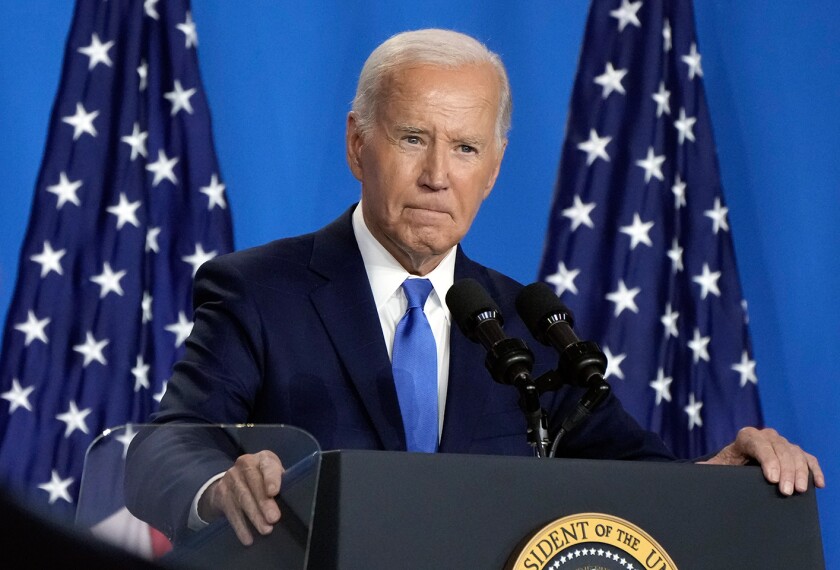Three months after President Barack Obama, in his inaugural address, pledged to “restore science to its rightful place,” education researchers are still trying to figure out how they fit into that vision.
The uncertainty was evident last week as the world’s largest education research group—the Washington-based American Educational Research Association—met here for its annual gathering.
“People keep asking me, ‘Will this administration be friendlier to research?’?” Michael J. Feuer, the program chairman for the April 13-17 meeting, told conference-goers on April 15. “I think it’s a little too early to tell, truthfully.”
Yet judging from Mr. Obama’s earlier writings, added Mr. Feuer, who is also the director of the division of behavioral and social sciences and education for the National Research Council in Washington, “if things work out the way it sounds, I think we’ll be in good shape.”
While the federal government’s economic-stimulus package sets aside more than $100 billion for K-12 education and higher education—and billions more for research in other areas of science—it provides no specific funds for research in education.
Even the $250 million set aside in the package to help states build longitudinal student-data systems makes no provision for studies to mine the data that might result.
“There is a suggestion that education does have a different status than other kinds of research in the stimulus bill,” Kenji Hakuta, a Stanford University psycholinguist, said during a session earlier in the week. “The advice we’re getting is for researchers to hook up with school districts so that they can enjoy some of the stimulus money.”
Tapping Stimulus Aid
Some of that advice at last week’s meeting came from Marshall S. “Mike” Smith, a senior adviser to U.S. Secretary of Education Arne Duncan and a distinguished education researcher in his own right.
“The stimulus is going to create a lot of money in states, and states don’t know what to do with it,” said Mr. Smith, who served in the U.S. Department of Education under the administrations of two previous presidents. “It’s going to create a lot of money in schools, and schools don’t know what to do with it.”
Mr. Smith, whose career has included stints as dean of the school of education at Stanford University and as director of the Wisconsin Center for Education Research at the University of Wisconsin-Madison, said researchers also might find opportunities through new grant programs in the stimulus package that are aimed at fostering educational innovation and improving teacher quality.
Also, he hinted that, when the final details are out on President Obama’s proposed education budget for 2010, researchers might see a boost in federal funding for research on education.
“I would be very surprised,” Mr. Smith said, “if it went down or stayed even.”
He and other experts also said researchers, many of whom often prefer to stay out of the political fray, may need to aggressively seek out partners to pursue federally financed research opportunities.
“A situation like this is probably never going to happen again,” Mr. Smith added.
But Jane Hannaway, the director of the Education Policy Center at the Urban Institute, a Washington-based think tank, cautioned the group to also “be careful what you wish for.”
‘No Way’ to Complain
“We’ve got all this big-time money, and there’s no way that we can complain anymore that we don’t have enough money to do the job,” she said. “If we find in a few years that all this money didn’t make a difference, we’re further back than where we started.”
To some degree, researchers have already begun to position themselves to play a role in shaping the education research agenda of the new administration.

At the request of ED in ’08, an initiative that tried to raise the profile of education in the 2008 presidential election, a group of researchers from the National Academy of Education—a Washington-based group of prominent scholars in the field—is putting together a set of “white papers” for the administration that lays out areas of consensus on key educational issues.
A preliminary version of the papers was released soon after the November presidential election, but the final, more comprehensive version is not expected to be published until June.
Likewise, the theme of this year’s AERA conference, “Disciplined Inquiry: Education Research in the Circle of Knowledge,” was designed to showcase the multiple research methods that education researchers use. The effect was to shift the focus at the national level from randomized controlled trials, which the Bush administration emphasized as the most reliable approach to producing new knowledge about education.
In her keynote address to the group, outgoing AERA President Lorraine M. McDonnell also made a pitch for researchers to engage more directly in the public-policy sphere by studying the governance structures that support public education in the United States.
“There is growing concern that education is facing a major crisis in its governing institutions,” said Ms. McDonnell, who is also a political science professor at the University of California, Santa Barbara.
She said that concern grew partly because education initiatives such as the federal No Child Left Behind Act and the expansion of the charter school sector are placing increasingly complex demands on local-level policymakers, many of whom also have day jobs.
“This has gotten scant research attention,” she said, “and the system requires a major overhaul.”





